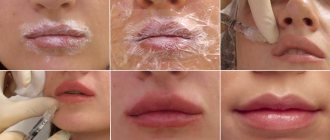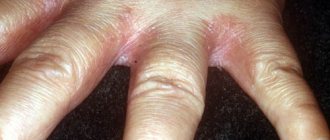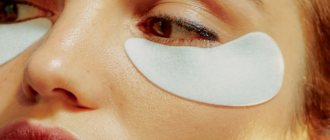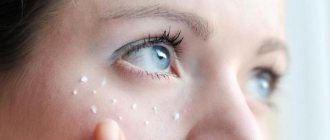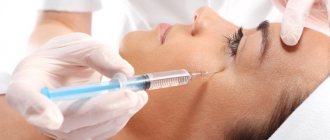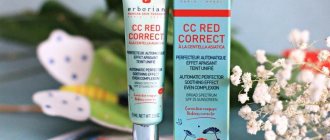What is radiation therapy?
Radiation therapy (x-ray therapy, telegamma therapy, electron therapy, neutron therapy, etc.) is the use of a special type of energy from electromagnetic radiation or beams of elementary nuclear particles that can kill tumor cells or inhibit their growth and division.
Some healthy cells exposed to radiation are also damaged, but most are able to recover. Tumor cells divide faster than the healthy cells around them. Therefore, radiation is more harmful to them. It is these differences that determine the effectiveness of cancer radiation therapy.
What types of cancer is radiation therapy used for?
Radiation therapy is used to treat a variety of cancers. Currently, more than half of patients suffering from one or another type of cancer are successfully treated with radiation.
Radiation can be used as a stand-alone treatment. Sometimes RT is given before surgery to shrink the tumor or after surgery to kill remaining cancer cells. Quite often, doctors use radiation together with anticancer drugs (chemotherapy) to destroy the tumor.
Even in those patients whose tumor cannot be removed, RT can reduce its size, reduce pain and improve general condition.
Equipment for radiotherapy
To carry out radiation therapy, special complex devices are used that allow directing the flow of therapeutic energy to the tumor. These devices differ in their operating principle and are used for different purposes. Some of them are used to treat superficial cancer (skin cancer), while others are more effective in treating tumors located deep in the body.
Your doctor will decide which device is best to use.
The radiation source can be brought to the diseased area in several ways.
If the source:
- is located at a distance from the patient’s body, irradiation is called remote;
- placed in any cavity - intracavitary;
- injected directly into the diseased area in the form of liquid, wire, needles, probes - interstitial.
The process of radiation therapy
Preparing for treatment
During this period, additional studies are carried out to clarify the localization and assess the condition of healthy tissue surrounding the pathological focus.
Before starting a course of radiation, radiation doses are carefully calculated and its methods are determined, with the help of which it is possible to achieve maximum destruction of tumor cells and protection of healthy tissue in areas of the body subject to exposure.
Your doctor will decide what dose of radiation you need, how to administer it and how many sessions it will take.
A whole group of highly qualified specialists - physicists, dosimetrists, mathematicians - helps to carry out these complex calculations. It sometimes takes several days for a decision to be made. This procedure is called planning.
During the simulation (planning), you will be asked to lie quietly on the table until the doctor uses a special X-ray machine to determine the radiation field. There may be several such areas. The irradiation fields are indicated by dots or lines (marking), using special ink. This marking should remain on the skin until the end of treatment. Therefore, while taking a shower, try not to wash it off. If the lines and dots start to blur, tell your doctor. Don't draw the dots yourself.
Already in the pre-radiation period:
- do not use tinctures of iodine and other irritating agents on areas of the skin that will be exposed to radiation;
- should not sunbathe;
- If there are diaper rashes or rashes on the skin, you should point them out to your doctor. He will prescribe appropriate treatment (powders, ointments, aerosols);
- If radiation therapy will be carried out to treat a tumor of the maxillofacial area, preliminary sanitation of the oral cavity (treatment or removal of carious teeth) is necessary. This is the most important measure for the prevention of radiation complications in the oral cavity.
How does a treatment session work?
You will be asked to lie quietly on the table until the radiologist uses a special X-ray machine to determine the radiation field. There may be several such areas. The irradiation fields are designated by dots or lines (marking), using special ink for this.
This marking should remain on the skin until the end of treatment. Therefore, while taking a shower, try not to wash it off. If the lines and dots start to blur, tell your doctor. Don't draw the dots yourself.
Already in the pre-radiation period, you should not use iodine tinctures and other irritating agents on areas of the skin that will be exposed to radiation. You should not sunbathe. If there are diaper rashes or rashes on the skin, you should point them out to your doctor. He will prescribe appropriate treatment (powders, ointments, aerosols).
If radiation therapy is carried out to treat a tumor of the maxillofacial area, preliminary sanitation of the oral cavity (treatment or removal of carious teeth) is necessary. This is the most important measure for the prevention of radiation complications in the oral cavity.
Local complications
They can be acute, occurring in the first days, early, appearing within three months, and late, making themselves felt after many months or years. The clinical picture is quite variable depending on which area is irradiated. It is classified according to degrees of complexity from mild (spasms, stasis) to severe morphological changes, the most dangerous of which is malignancy (malignancy) of the treatment area. In case of local complications, areas with the greatest radiosensitivity are involved in the inflammatory process:
- skin – elbows, armpits, neck, inguinal folds;
- mucous membranes - the most vulnerable are hollow organs (larynx, esophagus, intestines, etc.) and those with non-keratinizing epithelium (palatine arches, soft palate);
- kidneys;
- bladder;
- liver;
- heart;
- lungs;
- spinal cord and brain;
- bone.
The tomotherapy technique provides more accurate modeling of the boundaries of the tumor and optimal radiation intensity, thereby minimizing the negative impact on surrounding organs and tissues. The less the absorbed dose exceeds the ability of tissues to tolerate radiation, the less often complications are observed. It completely depends on the target area and irradiation mode. Thanks to this, the treatment is tolerated more comfortably, and the damage is well amenable to drug correction and is temporary.
The development of some complications can be prevented by following simple rules for recovery. Timely rehabilitation after radiation therapy plays a major role in this.
Radiation therapy: how is treatment carried out?
Choosing a treatment regimen using radiation therapy
Typically the course of treatment lasts 4-7 weeks. In some cases, when radiation therapy is carried out before surgery to reduce the size of the tumor or to alleviate the patient's condition, the course duration is 2-3 weeks.
Typically, radiation therapy sessions are carried out 5 times a week. Sometimes, in order to protect normal tissues in the irradiation zone, the daily dose is divided into 2-3 sessions. A two-day break at the end of the week allows healthy tissue to recover.
The decision on the total radiation dose and the number of sessions is made by the radiologist based on the size of the tumor and the location of the tumor, its type, your general condition and other types of treatment being performed.
How does a treatment session work?
You will be asked to lie on a treatment table or sit in a special chair. Based on the fields previously marked on the skin, the irradiation zones will be accurately determined. Therefore, you should not move during irradiation. You need to lie calmly, without much tension, breathing should be natural and uniform. You will be in the office for 15-30 minutes.
Before turning on the unit, the medical staff goes to another room and watches you on TV or through a window. You can communicate with him through the loudspeaker.
Some parts of radiotherapy machines may move and make noise during operation. Don't worry - the whole process is controlled.
The irradiation itself is painless. If you feel unwell during radiation exposure, tell your doctor immediately without taking any action on your own. The installation can be turned off at any time.
It is possible that already at the beginning of treatment you will feel a decrease in pain (if any). However, as a rule, the greatest therapeutic effect of radiation therapy occurs after completion of the course of treatment.
To obtain a good therapeutic effect, it is very important that you complete all prescribed treatment sessions.
How to behave during radiation therapy
The body's response to radiation therapy varies from person to person. However, in any case, the radiation therapy process represents a significant burden on the body. Therefore, you may develop a feeling of fatigue during treatment. In this regard, you should rest more. Go to bed when you feel the need.
The sensation usually goes away within 4-6 weeks after completing treatment. However, you should not completely avoid physical activity, which increases the body's defenses and resistance to harmful influences. You can get recommendations on the selection and dosage of physical activity from your doctor and a physical therapy specialist.
During treatment you should follow some rules
- Eat well. Try to stick to a balanced diet (ratio of proteins, fats and carbohydrates 1:1:4). Along with food, you need to take 2.5-3 liters of liquid per day (fruit juices, mineral water, tea with milk).
- Give up bad habits (smoking, drinking alcohol), at least for the period of treatment.
- Do not wear clothing that is tight to the areas of your body being irradiated. Items made from synthetic fabrics and wool are extremely undesirable. Loose, old cotton clothing is preferred. If possible, the areas of skin to be irradiated should be kept open.
- Get outdoors more often.
- Carefully monitor the condition of your skin. Irradiated skin sometimes appears tanned or darkened. By the end of treatment, in some cases, the irradiated areas of the body may become excessively moist (especially in the folds). This largely depends on your individual sensitivity to radiation. Tell your doctor or nurse about any changes you notice. They will give appropriate recommendations.
- Do not use soap, lotions, deodorants, ointments, cosmetics, perfumes, talc or other similar products on the exposed area of your body without consulting your doctor.
- Do not rub or scratch the area of skin being treated. Do not place warm or cold objects (heating pad, ice) on it.
- When going outside, protect the exposed part of the skin from the sun (light clothing, a wide-brimmed hat).
What awaits the patient after radiation?
Side effects of radiation
Radiation therapy, like any other type of treatment, can be accompanied by general and local (in the area of irradiation on tissue) side effects. These phenomena can be acute (short-term, occurring during treatment) and chronic (developing several weeks or even years after the end of treatment).
Side effects of radiotherapy most often occur in tissues and organs directly exposed to radiation. Most side effects that develop during treatment are relatively mild and can be treated with medication or proper nutrition. They usually disappear within three weeks after the end of radiation therapy. Many patients experience no side effects at all.
During treatment, the doctor monitors your condition and the effect of radiation on body functions. If you experience any unusual symptoms during treatment (cough, sweating, fever, unusual pain), be sure to tell your doctor or nurse.
Common side effects of radiation therapy
Emotional condition
Almost all patients undergoing cancer treatment experience some degree of emotional stress. The most common feelings are depression, fear, melancholy, loneliness, and sometimes aggression. As the general condition improves, these emotional disturbances become dull. Communicate more often with family members and close friends. Don't isolate yourself. Try to take part in the lives of the people around you, help them and do not refuse their help. Talk to a therapist. Perhaps he will recommend some acceptable methods of relieving tension.
Fatigue
Feelings of fatigue usually begin within a few weeks of starting treatment. It is associated with significant physical stress on the body during radiation therapy and stress. Therefore, during the period of radiation therapy, you should slightly reduce your overall activity, especially if you are used to working at a strenuous pace. However, do not completely avoid housework; take part in family life. Do things that you enjoy more often, read more, watch TV, listen to music. But only until you feel tired.
If you do not want others to know about your treatment, you can take a vacation during the treatment period. If you continue to work, talk to your manager - he may change your work schedule. Don't be afraid to ask your family and friends for help. They will certainly understand your condition and provide the necessary support. After completing the treatment, the feeling of fatigue gradually disappears.
Blood changes
When large areas of the body are irradiated, the number of leukocytes, platelets and red blood cells in the blood may temporarily decrease. The doctor monitors hematopoietic function using blood tests. Sometimes, with pronounced changes, a break in treatment is taken for one week. In rare cases, medications are prescribed.
Decreased appetite
Radiation therapy usually does not cause nausea or vomiting. However, there may be a decrease in appetite. You must understand that in order to repair damaged tissues, you must eat enough food. Even if you don't feel hungry, you need to make an effort to eat a high-calorie, high-protein diet. It will make it possible to better cope with side effects and improve the results of cancer treatment.
Some nutritional tips during radiation therapy:
- Eat a variety of foods often, but in small portions. Eat when you want, regardless of your daily routine.
- Increase the calorie content of food - add more butter if you like its smell and taste.
- To increase your appetite, use a variety of sauces.
- Between meals, consume kefir, a mixture of milk with butter and sugar, and yogurt.
- Drink more fluids, preferably juices.
- Always have a small supply of foods you like (approved for storage in the clinic where treatment is carried out) and eat them when you feel like eating something.
- While eating, try to create conditions that improve your mood (turn on the TV, radio, or listen to your favorite music while eating).
- Talk to your doctor about drinking a glass of beer with meals to increase your appetite.
- If you have any medical conditions that require you to follow a specific diet, talk to your doctor about ways to vary your diet.
Side effects on the skin
The skin's reaction to radiation is manifested by redness in the area of exposure. In many ways, the development of this phenomenon is determined by your individual sensitivity to radiation. Redness usually appears at 2-3 weeks of treatment. After radiation therapy is completed, the skin in these areas becomes slightly dark, as if tanned.
To prevent an overly pronounced skin reaction, you can use vegetable and animal oils ("Children's", "Velvet" cream, aloe emulsion), which should be applied to the skin after a radiation therapy session.
Before the session, you need to wash off the remaining cream with warm water. However, the skin should be lubricated with appropriate ointments and creams not from the first days of irradiation, but later, when the skin begins to redden. Sometimes, if there is a severe radiation reaction of the skin, a short break in treatment is taken.
For more information about skin care, consult your healthcare professional.
Side effects on the mouth and throat
If you are receiving radiation to the maxillofacial area or neck, in some cases the mucous membrane of the gums, mouth and throat may become red and inflamed, and you may experience dry mouth and pain when swallowing. Usually these phenomena develop in the 2-3rd week of treatment.
In most cases, they go away on their own within a month after completion of radiation therapy.
You can alleviate your condition if you follow the recommendations below:
- Avoid smoking and alcohol during treatment as they also cause irritation and dryness of the oral mucosa.
- Rinse your mouth at least 6 times a day (after sleep, after each meal, at night). The solution used must be at room temperature or refrigerated. What solutions are best for rinsing the mouth can be found out from your doctor.
- Twice a day, gently, without pressing hard, brush your teeth with a soft toothbrush or cotton swab (after use, rinse the brush thoroughly and store dry).
- Consult your dentist for the right toothpaste. It should not be harsh and irritate the mucous membranes.
- If you use dentures, remove them before your radiation therapy session. If dentures rub your gums, it is better to temporarily stop using them.
- Do not eat sour, spicy foods.
- Try to eat soft foods (baby food, purees, cereals, puddings, jellies, etc.). Soak hard and dry foods in water.
Side effects on the mammary gland
When undergoing radiation therapy for a breast tumor, the most common side effect is skin changes (see section "Side effects on the skin"). In addition to following the above skin care recommendations, you should avoid wearing a bra during the treatment period. If you feel uncomfortable without it, use a soft bra.
Radiation therapy may cause pain and swelling in the breast area, which will disappear or gradually decrease after treatment is completed. The irradiated mammary gland can sometimes become larger (due to fluid accumulation) or smaller (due to tissue fibrosis).
In some cases, these deformations of the shape of the gland can persist for the rest of life. You can find out more about the nature of changes in the shape and size of the mammary gland from your attending physician.
Radiation therapy may impair shoulder motion. Consult a physical therapy specialist about what exercises you should do to prevent this complication.
In some patients, radiation therapy may cause swelling of the arm on the side of the irradiated gland. This swelling may develop even 10 years or more after completion of treatment. Therefore, it is necessary to carefully monitor the condition of your hand and adhere to certain rules of behavior:
- Avoid heavy lifting (no more than 6-7 kg), vigorous movements requiring excessive effort (pushing, pulling), or carrying a bag over your shoulder on the side of the irradiated breast.
- Do not allow blood pressure to be taken or injections (blood drawn) into the arm on the side being treated.
- Do not wear tight-fitting jewelry or clothing on this arm. If you accidentally damage the skin of your hand, treat the wound with alcohol (but not alcohol tincture of iodine!) and cover the wound with a bactericidal plaster or apply a bandage.
- Protect your hand from direct sunlight.
- Maintain your optimal weight through a balanced, low-salt, high-fiber diet.
- If you experience even occasional hand swelling that goes away after a night's sleep, contact your doctor immediately.
Side effects on the chest organs
During radiation therapy, you may have difficulty swallowing due to radiation inflammation of the esophageal mucosa. You can make eating easier by eating small meals more often, thinning thick foods, and cutting solid foods into pieces. Before eating, you can swallow a small piece of butter to make it easier to swallow.
You may develop a dry cough, fever, change in sputum color, and shortness of breath. If you notice these symptoms, tell your doctor immediately. He will prescribe special drug treatment.
Side effects on the rectum
This may occur during radiation therapy for cancer of the rectum or other pelvic organs. With radiation damage to the intestinal mucosa, pain and bleeding may appear, especially with difficult stool.
In order to prevent or reduce the severity of these phenomena, it is necessary to prevent constipation from the first days of treatment. This can be easily achieved by organizing an appropriate diet. It is necessary to additionally include kefir, fruits, raw carrots, stewed cabbage, prune infusion, tomato and grape juice in the diet.
If, despite following the recommendations, you experience stool retention for more than 1-2 days, be sure to inform your doctor about this.
Side effects on the bladder
Radiation therapy sometimes causes inflammation of the lining of the bladder. This can lead to frequent painful urination and increased body temperature. Occasionally, the urine becomes reddish in color. If you notice these symptoms, tell your doctor. These complications require special drug treatment.
How to behave after completion of radiation therapy (post-radiation period)
After completing a course of radiotherapy, it is very important to periodically check the results of your treatment. You should have regular follow-up examinations with a radiologist or the doctor who referred you for treatment. The time of the first follow-up examination will be determined by the attending physician upon discharge.
The schedule for further observation will be drawn up by the doctor at the clinic or dispensary. These same specialists will, if necessary, prescribe further treatment or rehabilitation for you.
Symptoms for which you should consult a doctor without waiting for the next follow-up examination:
- the occurrence of pain that does not go away on its own within several days;
- nausea, diarrhea, loss of appetite;
- increased body temperature, cough;
- the appearance of a tumor, swelling, unusual rashes on the skin;
- development of limb edema on the irradiated side.
Care for irradiated skin
After completion of treatment, it is necessary to protect the irradiated skin from injury and sunlight for at least a year. Be sure to lubricate the irradiated areas of the skin with a nourishing cream 2-3 times a day, even when it has healed after treatment. Do not treat your skin with irritating products.
Ask your doctor which cream is best to use. Do not try to erase the marks left after irradiation; they will gradually disappear on their own. Give preference to showering over bathing. Do not use cold or hot water. When taking a shower, do not rub the irradiated areas of the skin with a washcloth. If irritation of irradiated skin persists for a long time, consult a doctor. He will prescribe appropriate treatment for you.
Remember: mild pain in the irradiated area is common and quite common. If it occurs, you can take mild painkillers. If pain is severe, consult a doctor.
Relationships with relatives and friends
Radiation therapy does not make your body radioactive. It should also be clearly understood that cancer is not contagious. Therefore, do not be afraid to communicate with other people, friends and relatives during and after treatment.
If necessary, you can invite those closest to you to have a joint conversation with your doctor.
Intimate relationships
In most cases, radiation therapy does not have a significant effect on sexual activity. The decrease in interest in intimate relationships is caused mainly by the general physical weakness that occurs during this treatment and stress. Therefore, do not avoid intimate relationships, which are an important part of a fulfilling life.
Professional activity
When radiation therapy is performed on an outpatient basis, some patients do not stop working at all during the course of treatment. If you did not work during treatment, you can return to your professional activity as soon as you feel that your condition allows it.
If your job involves strenuous physical activity or occupational hazards, you should consider changing your working conditions or profession.
Leisure
Pay more attention to rest. You will regain your strength over time, so do not return to full physical activity right away. Visit theaters and exhibitions. This will allow you to take your mind off unpleasant thoughts.
Make it a rule to take daily walks in the fresh air (walks in the park, in the forest). Communicate more with friends and family. With the knowledge of your attending physician, consult with a physical therapist and psychotherapist. They will help you choose adequate physical activity (health-improving gymnastics) and suggest ways to overcome stress.
Conclusion
We hope that this information will help you get rid of unnecessary nervous tension, make it easier to undergo radiation therapy, and understand what awaits you after it. All this contributes to your recovery.
For more detailed information on issues related to your health, please contact your physician.
General complications
They arise due to the damaging effects of radiation, as well as due to intoxication with tumor decay products. The severity depends on the technology used and the dose received. In general, the symptoms are mild, so a break or cancellation is not required. Most often noted:
- from the gastrointestinal tract - nausea, vomiting, loss of appetite, taste perversion, stool disorders;
- chest organs - depression of respiratory function, cough and shortness of breath;
- central nervous system - dizziness, fatigue, sleep disturbance, memory impairment, irritability, depressed emotional state, headaches;
- with organic changes in blood vessels and the heart - a drop in blood pressure, arrhythmia, increased heart rate, and the appearance of systolic murmur.
Such signs are reversible, the disrupted processes are gradually restored and return to normal 3-6 months after the end of the manipulations.
To prevent deep leukopenia and thrombocytopenia, decreased blood clotting, and increased capillary permeability, laboratory tests of biological material are performed weekly.
Two problems - one solution
Modern medicine offers many different mechanisms for the normal healing of skin damage, prevention and treatment of pathological scars.
Among them there is one unique remedy, unlike others: the main active ingredient in it is a natural compound with high biological activity - epigallocatechin-3-gallate (one of the catechins of green tea). It is obtained by a special extraction method from the leaves of green tea Camellia sinensis.
This molecule has already been well studied: 3,500 studies have been conducted and its powerful anti-inflammatory effect has been scientifically proven, as well as the ability to normalize the process of formation and growth of new blood vessels, which is very important in wound healing without pigmentation and pathological scarring. Epigallocatechin-3-gallate accelerates and shortens the growth phase of new vessels, which leads to faster production of collagen in the first days of healing and suppresses its excessive production in the future, which prevents the formation of pathological scars.
Help with complications
Patients are prescribed consultations with relevant specialists, who, after examination, prescribe hematopoietic stimulants, anti-inflammatory, absorbable drugs according to indications, taking into account age and general condition. Therapy is aimed at alleviating symptoms and should be comprehensive.
In cases of tumor recurrence, the question arises about the need for an additional course of radiation. This is most often done for palliative (maintenance) purposes using low doses. Such an attempt usually ends in weak destruction of cancer cells and the formation of a trophic ulcer. Repeated palliative radiation does not provide any guarantee of success.
Diet
To prevent the occurrence of a general reaction or eliminate its manifestations, it is necessary to consume foods rich in microelements and vitamins, and drink at least 2 liters of fluid per day. These tips apply in almost all cases, but it is advisable to first discuss them with your doctor:
- avoid using spicy, fatty, fried foods, smoked foods, marinades;
- reduce salt intake or replace table salt with mineralized salt;
- cook food using vegetable oils;
- give preference to chicken and fish;
- drink only filtered water.
It is also worth considering the characteristics of individual injuries. For example, after irradiation of the abdominal organs, loose stools, nausea, and vomiting are noted. Therefore, if you have diarrhea, it is advisable to exclude dairy products from the menu. Vegetable soups, pureed porridge, mashed potatoes, boiled fish, steamed cutlets, and jelly are very healthy.
Labor activity
Many citizens, after successful radical therapy, after a certain time are considered practically healthy and, if the diagnosis allows, can return to their workplace. However, they also remain under medical supervision to prevent the development of complications. Control is carried out over the cardiovascular system, morphological picture of the blood, immunity, bioelectrical activity of the brain, etc.
Our specialists will help you get back to your favorite job faster and feel in demand in your professional field. Do you want to ask clarifying questions about rehabilitation? Dial the specified hotline number or request a call back, and our staff will answer them.
What you need to remember about Egallohit
- Egallohit is an effective local remedy that ensures rapid healing of the skin and prevents the formation of all types of pathological scars, and also improves the condition of old scars after mastectomy and radiation therapy, which has been proven in clinical studies;
- Egallohit is a concentrate of the biologically active substance epigallocatechin-3-gallate, which has an anti-inflammatory and wound-healing effect on tissue;
- Egallohit is of natural origin, therefore it is harmless, does not cause side effects and can be used for a long time.
List of scientific works:
- Epigallocatechin Gallate (EGCG) is the most effective cancer chemopreventive polyphenol in green tea (Du GJ, Zhang Z, Wen XD, Yu C, Calway T, Yuan CS, Wang CZ);
- Study of the effectiveness and safety of epigallocatechin-3-gallate (galaderm cream) during photodynamic therapy of basal cell skin cancer (A. S. Yusupov);
- Results of an open comparative randomized controlled study of the clinical effectiveness and safety of epigallocatechin-3-gallate gel in patients with acne (Z. R. Khismatullina, G. S. Kantyukova, V. I. Kiselev, V. M. Drukh).
PHOTOS: unsplash.com
Share
Lifestyle Tips
In order to allow the body to recover, prevent side effects or minimize them, you should follow simple rules:
- food should not be cold or hot, well chopped, cooked in the oven, steamed or boiled on the stove. Take fractionally (7-8 times a day) and in small portions;
- refrain from physical activity and heavy lifting;
- take leisurely walks in any weather;
- perform breathing exercises daily to enrich the body with oxygen;
- to remove toxins from the body, drink clean water in small sips;
- Protect irradiated areas from exposure to direct sunlight with thick fabric;
- Carry out hygiene with warm water, without using hard washcloths or sponges. Choose soft, delicate, hypoallergenic products for washing and care;
- wear comfortable underwear made of natural, breathable materials, making sure that it does not squeeze or injure the skin;
- give up bad habits - drinking alcohol and smoking.
Side effects
Unfortunately, the breakdown products of a cancerous tumor cause a number of undesirable effects:
- dryness, peeling, itching, redness of the skin, alternating with pigmentation. To prevent it from scratching and infection, moisturizers - ointments and creams - are prescribed;
- soreness, swelling and tightness in the muscles;
- limitation of range of motion in joints.
The attending physician should be informed of all unpleasant manifestations associated with treatment.

